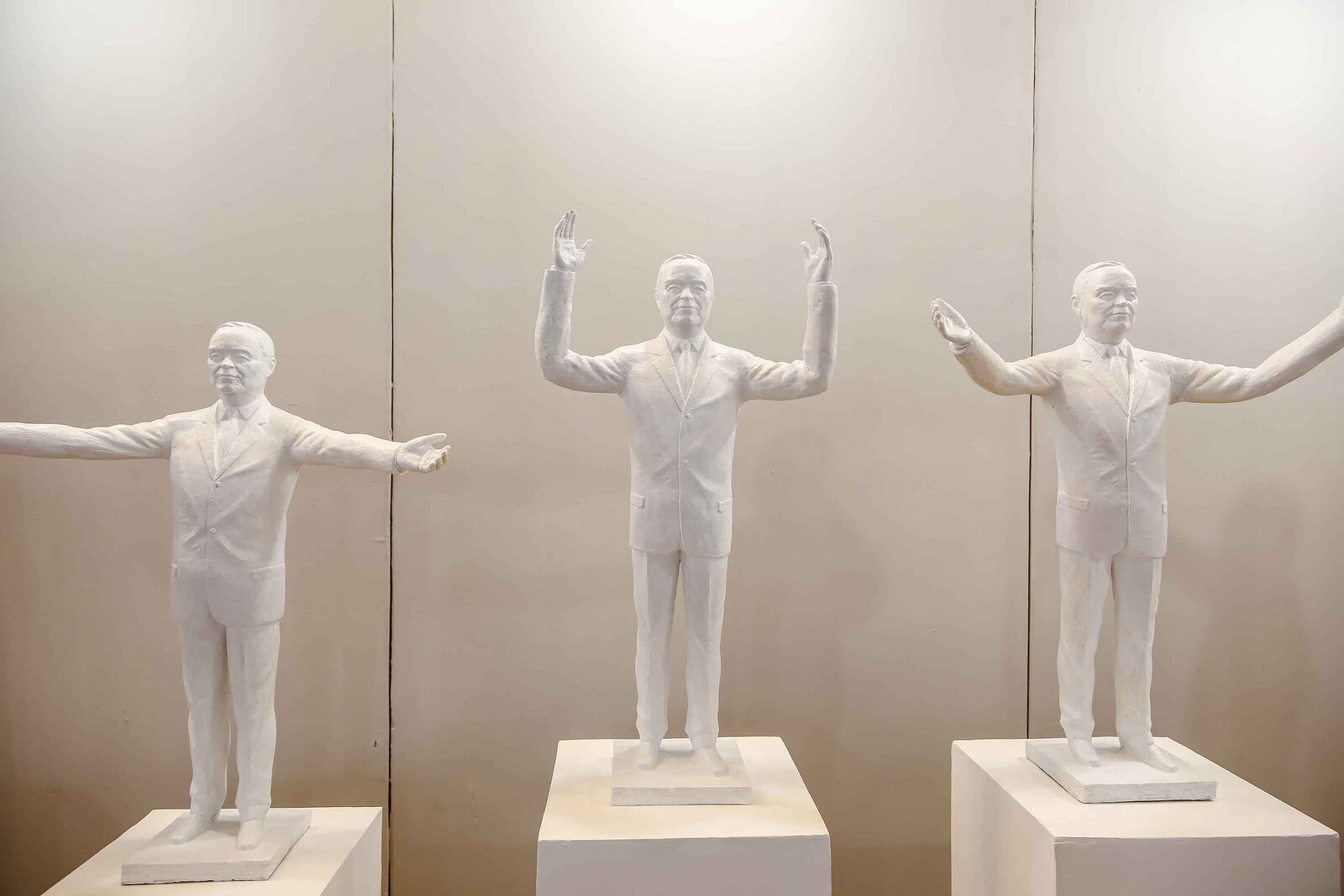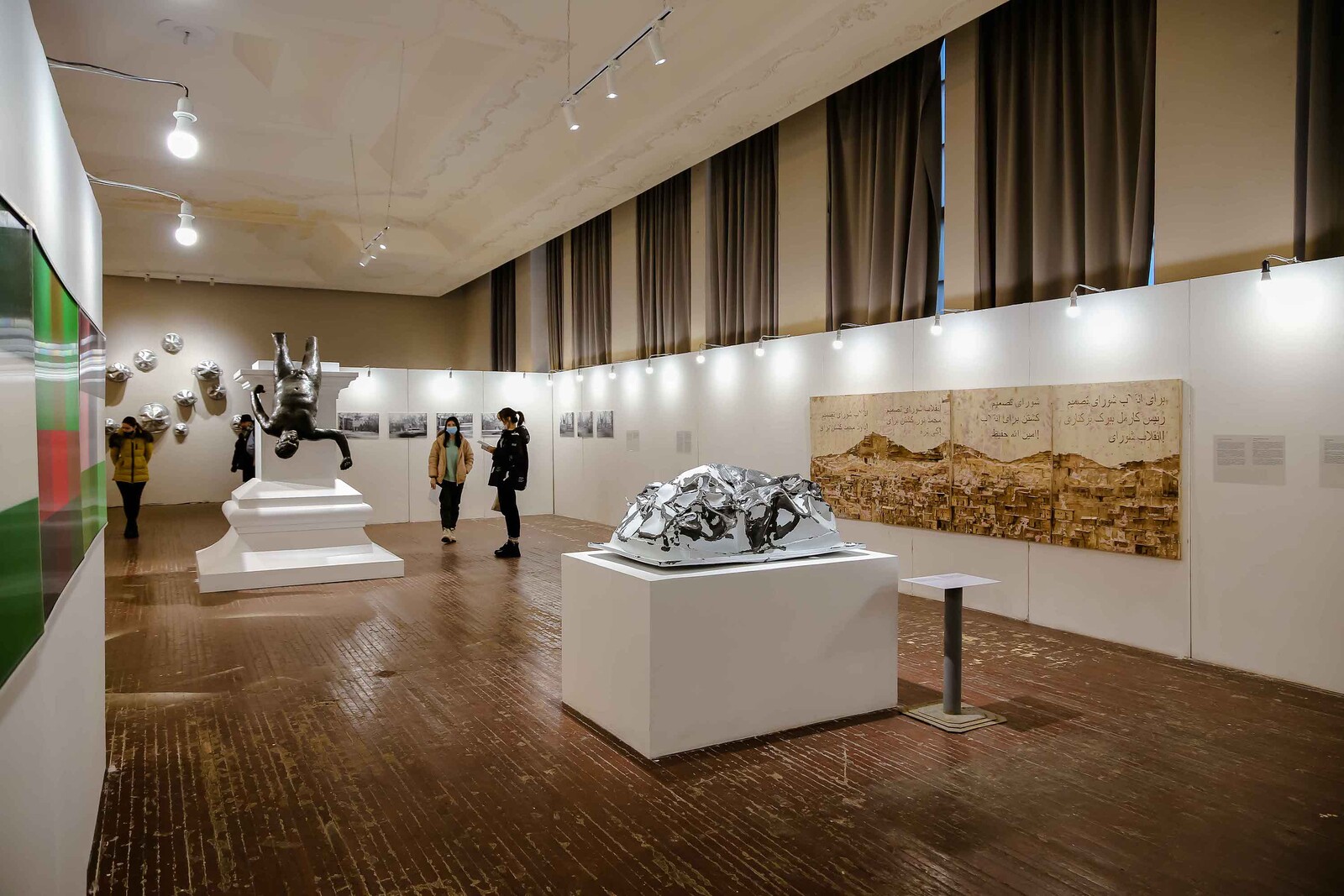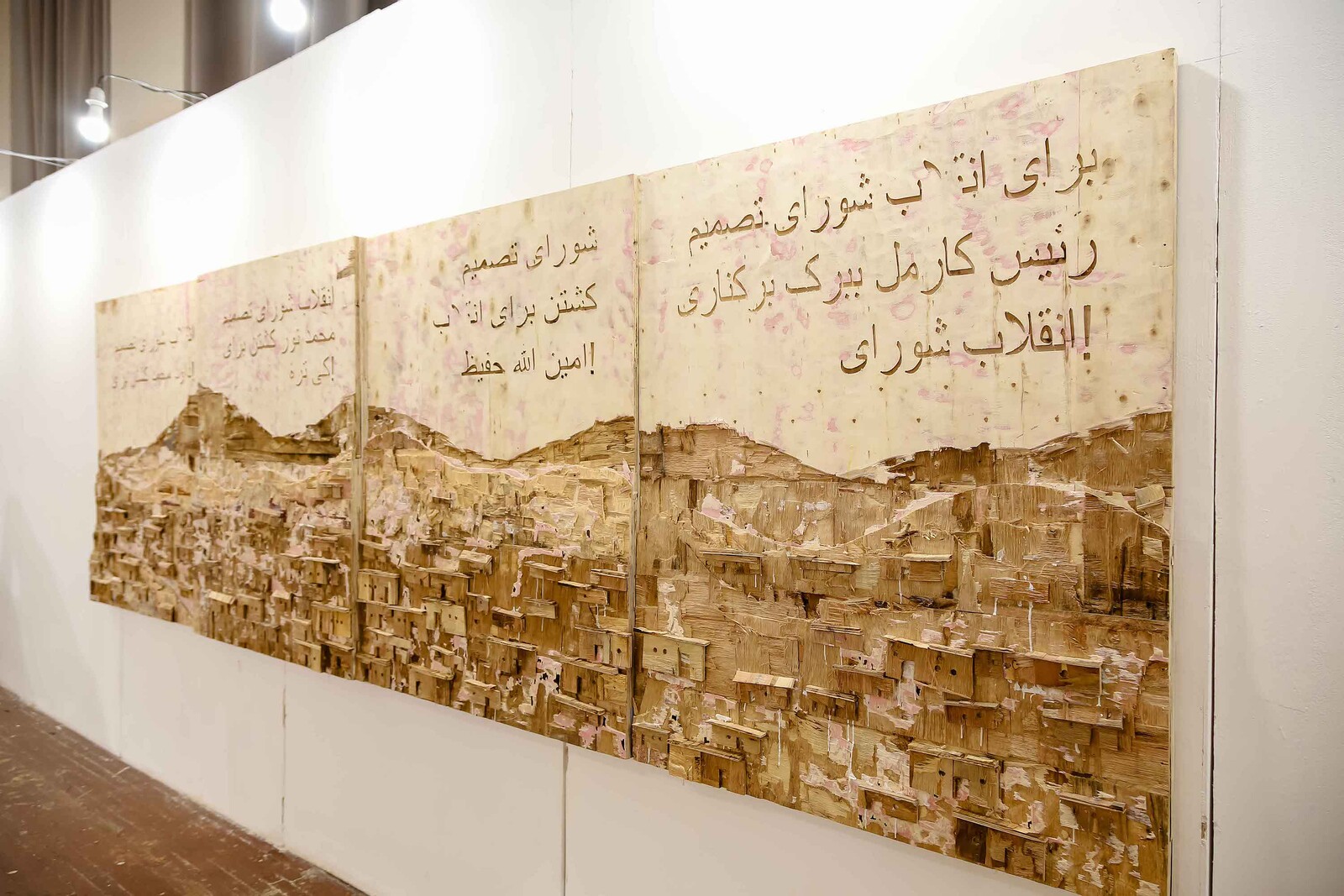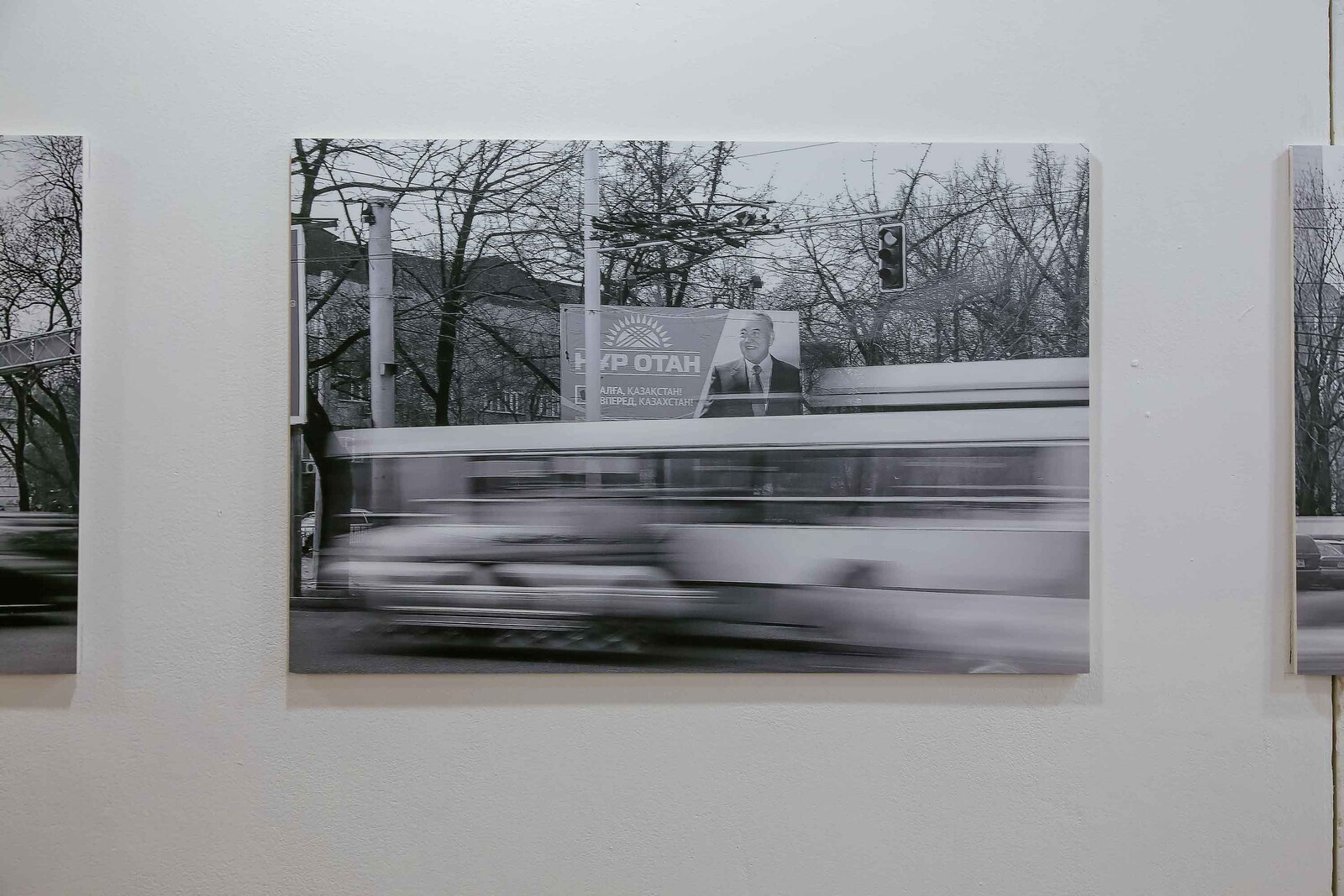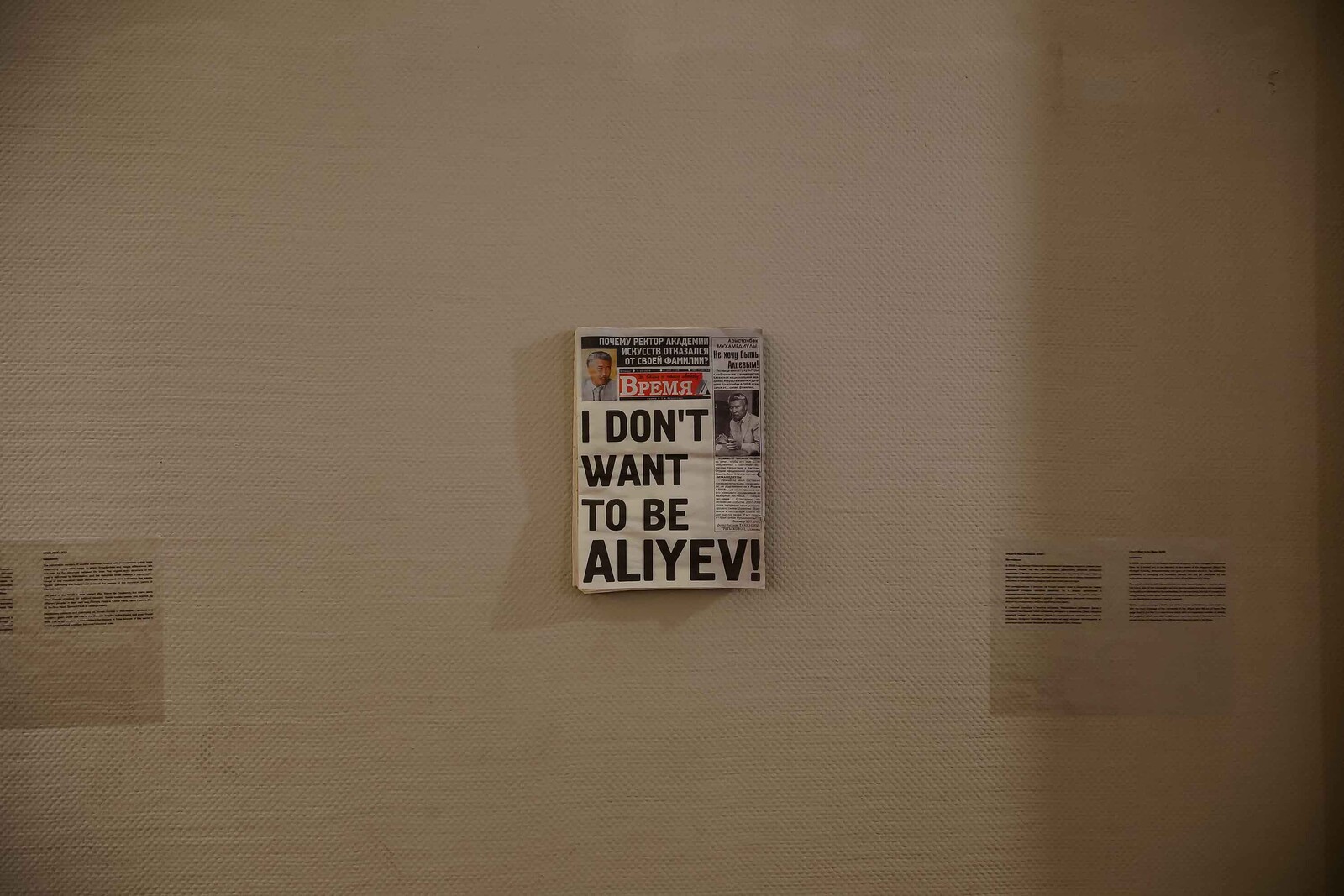Born in 1964, Yerbosyn Meldibekov is part of a generation of groundbreaking Kazakhstan artists who, since the collapse of the USSR, have challenged Russian imperialism. Working in a wide variety of media—photography, painting, sculpture, 3D-modeling, readymade, performance—Meldibekov disassembles the Eurocentric model of Empire, adopted by Russia as well, with its monuments to political and military leaders, neurotic craving for geographical expansion, and degrading stereotypes of conquered peoples. At the start of the nineteenth century, Russian authorities began to restrict Kazakh nomadism and traditional horse-breeding practices. Their aim was to coerce the populace into accepting agricultural and industrial jobs that integrated neatly into Russia’s imperial framework of resource extraction. Backlashes against this system have been constant over the decades since. But only since Kazakhstan declared its independence, in 1991, has the country begun openly to discuss its cultural autonomy. Meldibekov is prominent among the first generation of Kazakhstan artists clearly to denounce ideological frameworks of statehood based on colonial bureaucracy. Their alternative is the vast Kazakh steppe, where ideologies are accidental and infirm.
The centerpiece of Meldibekov’s show at Almaty’s Dom Na Baribayeva 36, The Fall of the Author (2021), is a self-portrait as a destroyed monument. On a white neoclassical pedestal a figure, painted black, is bent at the shins; the rest of the body gestures to the ground as if contorted by a tornado. The metaphorical wind of the steppe is more powerful than any of the West’s memorialization strategies, be it monuments to great men or notions of individual authorship. In Draft (2021), an installation in the front yard of the gallery, Meldibekov again employs wind as medium to drive the point home. A flimsy structure with a small window and a cooling fan installed in the opposite wall is a metaphor for Central Asia’s resistance to settler colonialism of any kind.
Curated attentively by Dastan Kozhakhmetov, the show focuses on work from the last decade or so. The most recent piece, a video entitled 118 Hours of Broken Silence, or Kazakh Language Lessons (2022), is dedicated to the victims of January 2022, when unrest over rising gas prices in the west of the country sparked nationwide protests against the ruling elite, culminating in the violent state-security crackdown on peaceful demonstrations in Almaty. The real number of dead and injured is still unknown (official statistics count 225 deaths and many more injuries).1 So too is the name of the person or authority responsible for giving the order to shoot at unarmed civilians. The investigation of this tragedy is carried out in secret, and help for the victims and their families is provided by an anonymous organization collecting testimonies and data. In Meldibekov’s video, his performative alter ego, Pastan, slowly utters the letters from which the names of the victims are composed. In Russia-backed autocracy, truth must be encoded in order to survive.
It is no coincidence that Russia and code feature heavily in Meldibekov’s work. The war in Ukraine has violently connected the dots between Russia’s expansionist past and present. For some scholars, the question of whether the Soviet Union was a colonial empire is still a purely academic matter of comparative political science. Not so in Kazakhstan and other countries that gained their independence after 1991. The country’s identity had been undermined by decades of Soviet rule, during which the USSR positioned itself as a benevolent modernizer; in reality, the Soviets repressed native languages and customs and, in the Brezhnev years, trivialized them into bland “folk art.” Meldibekov finds typical examples of this top-down erasure in the toponymy of the local mountain ranges. Revolution Peak (2016–21) comprises several marble plates resembling a topographic map of the region, with points representing mountain peaks. Each was renamed in the Soviet era to wipe out the local vernacular. Beginning in the 1930s, mountains in Soviet-held Central Asia were renamed Stalin, Victory, Moscow, and even NKVD, the secret police that oversaw the crushing of local dissent. Some of these names were changed in the 1990s; others, such as Soviet Officers Peak in Tajikistan, remain on the maps.
In a number of works focusing on the Soviet Union’s control of the Revolutionary Council in 1970s Afghanistan, Meldibekov goes beyond the immediate sphere of Moscow’s influence. Kill Amin (2021) is an aluminum band mended into an elegant wave, with perforation copying encrypted paper tape that in 1979 carried orders from Moscow to kill Afghan leader Hafizullah Amin, a political murder that served as a trigger for the war in the country. Kill Daoud (2021) employs the same medium for a slightly different command: to liquidate Mohammad Daoud, the President of Afghanistan, in 1978. Decisions of the Revolutionary Council (2021) is a mixed-media panel depicting the cityscape of war-torn Kabul, with the title of the work hovering in Arabic script over the dilapidated housing.
The independence of former Soviet republics in Central Asia has always been precarious. Meldibekov makes this blatantly clear in State Protocol (2021), a series of adapted press photographs in which five recent presidents of neighboring Kyrgyzstan meet with Russian president-slash-eternal warlord Vladimir Putin. The photographs are arranged in a continuous sketch sheet, creating the illusion that all these meetings have happened on the same day. Russia’s president gets older, but his posture is erect, the wind of history in his sails. Will the decolonial draft from the steppes stimulate his downfall and send him the way of Meldibekov’s author?
“Kazakhstan puts unrest death toll at 225,” Reuters, January 15, 2022: https://www.reuters.com/world/asia-pacific/kazakhstan-says-225-bodies-delivered-morgues-during-unrest-2022-01-15/.


